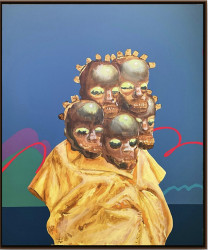
December 14, 2011
Taxing the Floating World
An easy source of income is lying under Japan’s nose
By Metropolis
Originally published on metropolis.co.jp on December 2011

Before March 11 it had become common talk: the consumption tax would have to be raised to help bring down the debt ratio. Never mind that a rise in the consumption tax would almost certainly decrease spending. After all, the “sin taxes” on tobacco and alcohol had already been raised. Could they be raised again? Would it matter? Probably not. So how to raise cash?
It is simple, it has been done, and it works. Legalize gambling, tax it. Legalize prostitution, tax it. Legalize soft drugs, tax them.
It sounds revolutionary, but it’s not. Japan has a long tradition of a “floating world” separated from the workaday one, and most current prohibitions are recent—dating back to 1945 and the US occupation.
Gambling has been a topic on the table for a while. The Japanese head to Korea, Macau or (more recently) Singapore for their casino pleasures. Does Japan need to export capital to these countries? Plus, there is a large revenue to be had in selling the license to operate here to big gambling companies. The jobs generated must also be counted: construction, hotel management, restaurant management, casino bosses and workers, accountants, service providers. Put one such establishment in Tohoku (with proper tsunami protection) and there will be a great many more jobs to lure people there than just fishing and subsistence farming (neither of which might be possible for quite some time, anyway).
Legalize prostitution. There will be howls on this, but does anyone believe it does not already exist here—mostly controlled by gangs? Most of Western Europe has decriminalized or legalized prostitution for decades now. Yes, police will occasionally have to intervene in cases of trafficking and illegal activities but when that happens, all legal force should be brought to bear on the offenders. However, if grown adults choose their profession and pay taxes on it, and consent to regulations such as medical checks—rather than being brought in on phony entertainers’ visas and living in fear of gangs and police alike—then the only losers will be the pimps.
Legalize soft drugs. When people in Japan hear about the Japanese nurse currently under death sentence in Malaysia for smuggling amphetamines, they shake their heads. Here, in more enlightened Japan, that is a prison sentence. When Europeans hear about prison sentences in Japan for amounts of soft drugs that might not even prompt an interview with the police in their countries, they shake their heads. When people in the US hear about students at prominent universities expelled for a few grams of marijuana, at a time when many states in the US have already legalized medical marijuana, they, too, shake their heads.
These substances are here, now, and the only people making money from them are criminal enterprises. Meanwhile, taxpayers pay for the police, prosecutors, judges, and—last but not least—the prisons.
Many of the same police that so zealously guard private lives could as zealously make sure that the borders of the various “floating worlds” are not porous. And many of those same prosecutors and judges could make sure that violators are charged, and that the real bad guys get a hard bunk.
Humans have transgressive impulses. Societies debase themselves and enrich the worst (see the US Prohibition) when they elect to punish such impulses. Paraphrasing Dwight Eisenhower, every policeman, prosecutor, judge, jailer and jail cell used to hold those whose actions endanger no one, signify a theft, from Japanese society, from the victims of 3-11, from those with other needs.
It is a theft the country no longer has the luxury of tolerating and it should be ended with due and deliberate speed.
Have something to say about this story? Share your comments below.







